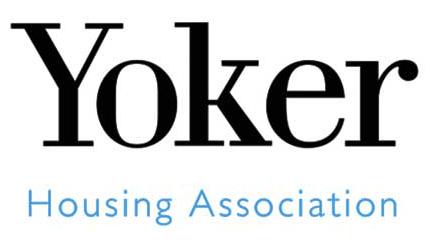Gas Safety
By law, the Association must ensure that all gas appliances, flues, and pipework are safely maintained and checked on an annual basis. This is to ensure your home is safe to live in. The Association must carry out a service before the anniversary date expires on the previous certificate.
You will be contacted by letter 28 days in advance of when the service is due and asked to contact Maintenance Services to arrange a suitable appointment.
Failure to allow access for the boiler service will result in the Association forcing entry to your property and recharging you for the costs incurred by us. This is not an action that we take lightly and we would urge you to give us access prior to the due date.
A copy of the gas safety certificate will be sent to you within 28 days. Please keep this safe and, if possible, next to your boiler.
A copy of the Association's Annual Gas Safety / Service Policy is available here.
A copy of the Association's Annual Gas safety / Service Procedures are available here.
A copy of the Association's Gas Safety Management System is available here.
Staying Gas Safe
To help keep yourself gas safe you should:
• Keep to the appointment given for the annual gas safety check and service. If you can't keep to this appointment you should contact the Association's Maintenance Department to re-arrange a suitable appointment that is before the anniversary date (i.e. within a year of the last service).
• If you have a pre-payment meter please make sure you have at least emergency credit on your electricity and gas meter to allow our engineer to carry out the gas safety check.
• Ensure you have cleared the area surrounding the boiler to enable the engineer easy access to the boiler.
Gas Leak
If you smell of gas or suspect a gas leak you should take the following steps:
• Report the leak to SGN by telephone on 0800 111 999;
• Switch off the gas appliance and shut off the gas supply at the meter control valve;
• Open all doors and windows to ventilate the house;
• Do not switch any electrical switches on or off, smoke or light a match;
• Move yourself and all other residents into fresh air; and
• Report the suspected gas leak to the Association's Maintenance Department on 0141 950 9051.
Carbon Monoxide
Carbon monoxide (CO) is a colourless, odourless, tasteless, poisonous gas produced by incomplete burning of carbon-based fuels, including gas, oil, wood and coal. Carbon-based fuels are safe to use. It is only when the fuel does not burn properly that excess CO is produced, which is poisonous. When CO enters the body, it prevents the blood from bringing oxygen to cells, tissues, and organs.
Carbon monoxide poisoning can result in death if gas appliances and flues have not been properly installed, maintained or are poorly ventilated. Levels of CO that do not kill can cause serious harm to health if breathed in over a long period. In extreme cases paralysis and brain damage can be caused as a result of prolonged exposure to CO.
Symptoms of Carbon Monoxide
Early symptoms of carbon monoxide (CO) poisoning can mimic many common ailments and may easily be confused with food poisoning, viral infections, flu or simple tiredness. Common symptoms include:
• Headaches or dizziness;
• Breathlessness;
• Nausea;
• Loss of consciousness;
• Tiredness;
• Pains in the chest or stomach;
• Erratic behaviour; and
• Visual problems.
Signs of Carbon Monoxide
The following signs indicate incomplete combustion is occurring and may result in the production of CO:
• Yellow or orange flames rather than blue flames in appliances (except fuel effect fires or flueless appliances which display this colour flame);
• Soot or yellow / brown staining around or on appliances;
• Pilot lights that frequently blow out;
• Increased condensation inside window; or
• CO detector being activated.
If your CO detector is activated or you start to display signs of carbon monoxide poisoning and / or witness some of the Signs of Carbon Monoxide you should take the following steps:
• Switch off your gas appliance and shut off the gas supply at the meter control valve;
• Open all doors and windows to ventilate the room;
• Move all residents into fresh air;
• Contact SGN on 0800 111 999;
• Contact your GP and explained that you may have been exposed to carbon monoxide; and
• Report the matter to the Association's Maintenance Department on 0141 950 9051.
